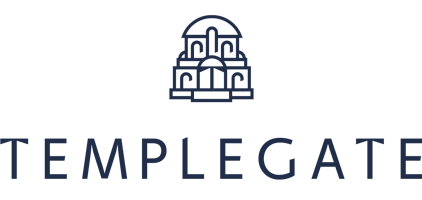As a financial planner, understanding client goals is essential for creating a plan that meets their needs. As aspirations, lifestyles and family dynamics become more complex, more clients are finding that a trust can support their needs. While not right for every client, a trust can be a useful addition to a financial plan in certain circumstances.
Being able to place property or other assets in a trust can be attractive for a variety of reasons from a financial planning point of view, including these seven.
1. Protecting assets
Protecting assets is one of the key reasons why a trust may be suitable for a client. The unexpected can, and does, occur and placing assets in a trust can be a way to safeguard against these occurrences. A trust can help preserve and protect a client’s assets if they owed money to creditors, experienced a marriage breakdown or someone was trying to influence a beneficiary.
A core part of financial planning is helping clients to ensure their plans are still on track even if the unexpected happens. As a result, asking ‘what if?’ questions and putting safety nets in place where necessary is important. In some cases, this may include setting up a trust for certain assets.
2. To pass assets on to children or vulnerable adults
When a client wants to make a gift or leave an inheritance to a loved one without giving them control of the assets, a trust can provide a solution. Most often, this is done to provide children with an inheritance that is managed on their behalf until they reach adulthood or when making long-term provisions for vulnerable adults. But there may be other reasons why this is a suitable alternative to giving a gift or leaving an inheritance too, for instance, if the beneficiary has made poor financial choices in the past.
3. Making a gift to loved ones while retaining some control
While on the subject of gifts, there may be times when a client still wants to retain some control over the asset or benefit from it in some way. A trust can be one way of making a flexible gift that suits both their short and long-term goals. For instance, a flexible reversion trust could be used in this way, as well as being suitable for clients that want to be able to adjust how the money goes to the beneficiaries too.
4. Planning for long-term care
An increasing concern among clients is the potential need for long-term care later in life. It can be a difficult subject to broach but with people living longer lives, the number of those needing some support in their later years is set to rise.
We help clients to understand how their income and assets can help them receive the type of care they’d prefer if it were required. For some, this many simply include setting some of their pension assets aside. In some cases, a trust can act as a safeguard, allowing bills and other expenses to be managed on their behalf should they lose mental capacity, while still allowing them to benefit from and manage the assets if this isn’t necessary.
5. Minimising an Inheritance Tax bill
Where an estate is liable for Inheritance Tax, it can significantly reduce the amount that loved ones receive. Any estate that is worth more than £325,000 should check to see if Inheritance Tax will be due and create a plan to reduce the bill. During 2019/20 alone, HMRC collected £5.2 billion from Inheritance Tax despite just one in 20 estates being liable.
As, in some cases, assets held in a trust are outside of an estate for Inheritance Tax purposes, setting up an appropriate trust can help clients to reduce the bill, leaving more behind for their loved ones.
If Inheritance Tax is a concern for a client, there are often many steps that can reduce the eventual bill. But they need to take a proactive approach. If any of your clients would like to discuss their options for minimising Inheritance Tax, we’d be happy to speak with them.
6. Avoiding the probate process
We know that the probate process can be lengthy, stressful and, depending on circumstances, leave beneficiaries in a financially vulnerable position.
Where a trust is outside of an estate, it can help mitigate these problems and ensure beneficiaries receive their inheritance as quickly as possible. It also means that any life insurance policies can be paid out quicker too, helping to secure the finances of those who the client wants to benefit from their estate.
7. Creating a legacy
Finally, for clients thinking about the future of their family, a trust can be an attractive way to create a long-lasting legacy. Placing assets in a trust means they can not only rest assured that loved ones will be financially secure but future relatives too. It means clients can make provisions for future grandchildren or great-grandchildren, and beyond. For clients where supporting family is a priority, it’s a step that can provide peace of mind.
Setting up a trust
While many of our clients can benefit from a trust for various reasons, we recognise the need to seek legal expertise too. We can offer clients advice on how a trust can support their lifestyle goals and financial situation, but a legal professional is typically needed to explain the different types of trusts and limitations too.
Please contact us if you’d like to discuss how we can work together to establish trusts that suit a client’s financial plans and long-term goals collaboratively.
Please note: Trusts and Tax Planning are not regulated by the Financial Conduct Authority. The benefits to the treatment of tax will depend on your individual circumstances and may be subject to change in the future.






